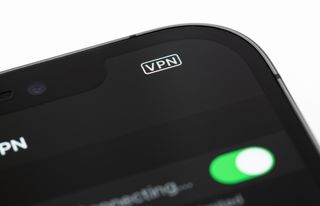Is It Safe to Use Vpn in India? Yes, it is safe to use a VPN in India. Users must ensure the VPN service complies with local regulations.
VPNs offer enhanced online privacy and security. They encrypt your internet traffic, shielding your data from potential cyber threats. In India, VPN usage is legal, allowing users to access restricted content and maintain anonymity online. It is essential to choose a reputable VPN service that adheres to Indian laws.
Some VPN providers have adjusted their policies to comply with the regulations. Users should avoid free VPNs, as they may compromise security. A reliable, paid VPN service ensures a secure browsing experience while protecting your personal information. Always check the VPN’s privacy policy and user reviews before selecting.
Legal Landscape
The legal landscape around VPN usage in India is complex. Understanding the rules helps you stay safe online.
Current Laws
VPNs are not illegal in India, but certain activities using VPNs can be. The Indian government does not ban VPNs, but using a VPN for illegal activities like hacking is against the law.
| Activity | Legality |
|---|---|
| Accessing blocked sites | Legal |
| Hacking | Illegal |
| Streaming geo-blocked content | Legal |
| Engaging in cybercrime | Illegal |
Recent Changes
Recent changes in India’s cybersecurity policies have occurred. The government now requires VPN providers to store user data for five years, including user names, addresses, and IP addresses. This change aims to prevent cybercrime.
Many VPN providers have responded to this new rule. Some have chosen to remove their servers from India, while others assure users that their data remains private.
Privacy Concerns
Using a VPN in India has both benefits and risks. Understanding the privacy concerns is crucial. This section covers two main areas: data collection and user anonymity.
Data Collection
Many VPN services collect user data, including browsing history, IP address, and connection timestamps. Some VPN providers may even sell this data to third parties.
Ensure the VPN you choose has a strict no-logs policy. This means they do not keep records of your online activities. Always read the privacy policy before subscribing to a VPN service.
Table of VPN services and their data collection policies:
| VPN Service | Data Collected | No-Logs Policy |
|---|---|---|
| Service A | IP Address, Connection Time | Yes |
| Service B | Browsing History | No |
| Service C | No Data | Yes |
User Anonymity
Maintaining user anonymity is a significant concern. While a VPN can hide your IP address, not all services guarantee full anonymity.
Look for VPNs that offer additional features like:
- Kill Switch: Disconnects you from the internet if the VPN fails.
- DNS Leak Protection: Ensures your DNS requests are secure.
- Multi-Hop: Routes your traffic through multiple servers.
These features help enhance your anonymity and protect your identity online.
Always verify the encryption standards used by the VPN. Strong encryption standards, like AES-256, are essential for ensuring your data remains private.
Vpn Services
Using VPN services in India can help protect your online privacy. They allow you to access content securely and anonymously. But, are they safe? Let’s explore some popular options and their security features.
Popular Options
Many VPN services are available in India. Some of the most popular ones include:
- NordVPN: Known for its strong security measures.
- ExpressVPN: Offers fast speeds and robust privacy.
- Surfshark: Affordable and user-friendly interface.
- CyberGhost: Provides a large number of servers.
Security Features
VPN services offer various security features to keep you safe online. These features include:

Credit: www.privateinternetaccess.com
| Feature | Description |
|---|---|
| Encryption | Encrypts your data to prevent unauthorized access. |
| No-logs Policy | Ensures your browsing history is not recorded. |
| Kill Switch | Disconnects you from the internet if the VPN fails. |
| Multi-factor Authentication | Adds an extra layer of security for your account. |
Risks And Benefits
VPNs have become popular tools for online privacy and security. But, is it safe to use a VPN in India? Let’s explore the risks and benefits associated with using VPNs in India.
Potential Risks
Using a VPN in India does have some risks. Below are the main concerns:
- Legal Uncertainty: The legal status of VPNs in India is unclear.
- Data Logging: Some VPNs may log your data.
- Security Risks: Free VPNs might expose you to security threats.
- Speed Reduction: VPNs can slow down your internet speed.
Advantages
Despite the risks, there are several benefits to using a VPN in India:
- Enhanced Privacy: VPNs hide your IP address.
- Secure Connection: VPNs encrypt your internet traffic.
- Access Restricted Content: VPNs allow you to access geo-blocked websites.
- Bypass Censorship: VPNs help you bypass government censorship.
In summary, using a VPN in India has both risks and benefits. Weigh these carefully to make an informed decision.
Frequently Asked Questions
Is It Okay To Use Vpn In India?
Yes, using a VPN in India is generally legal. However, you must follow local laws and regulations when using VPN services.
Which Is the Safest Vpn In India?
ExpressVPN is often considered the safest VPN in India. It provides strong encryption, a strict no-logs policy, and excellent customer support.
Is Vpn Traceable In India?
Yes, VPNs can be traceable in India. Authorities may request logs from VPN providers. Choose a no-log VPN for better privacy.
Which Country Is Banned Vpn?
China, Russia, Iran, North Korea, and Turkey have banned or heavily restricted VPN usage. These countries enforce strict internet censorship.
Conclusion
Using a VPN in India is generally safe if you choose a reliable provider. Ensure the VPN follows strict no-logs policies. Always check for encryption standards to protect your data. Stay informed about local regulations. By doing so, you can enjoy secure and private internet browsing.


